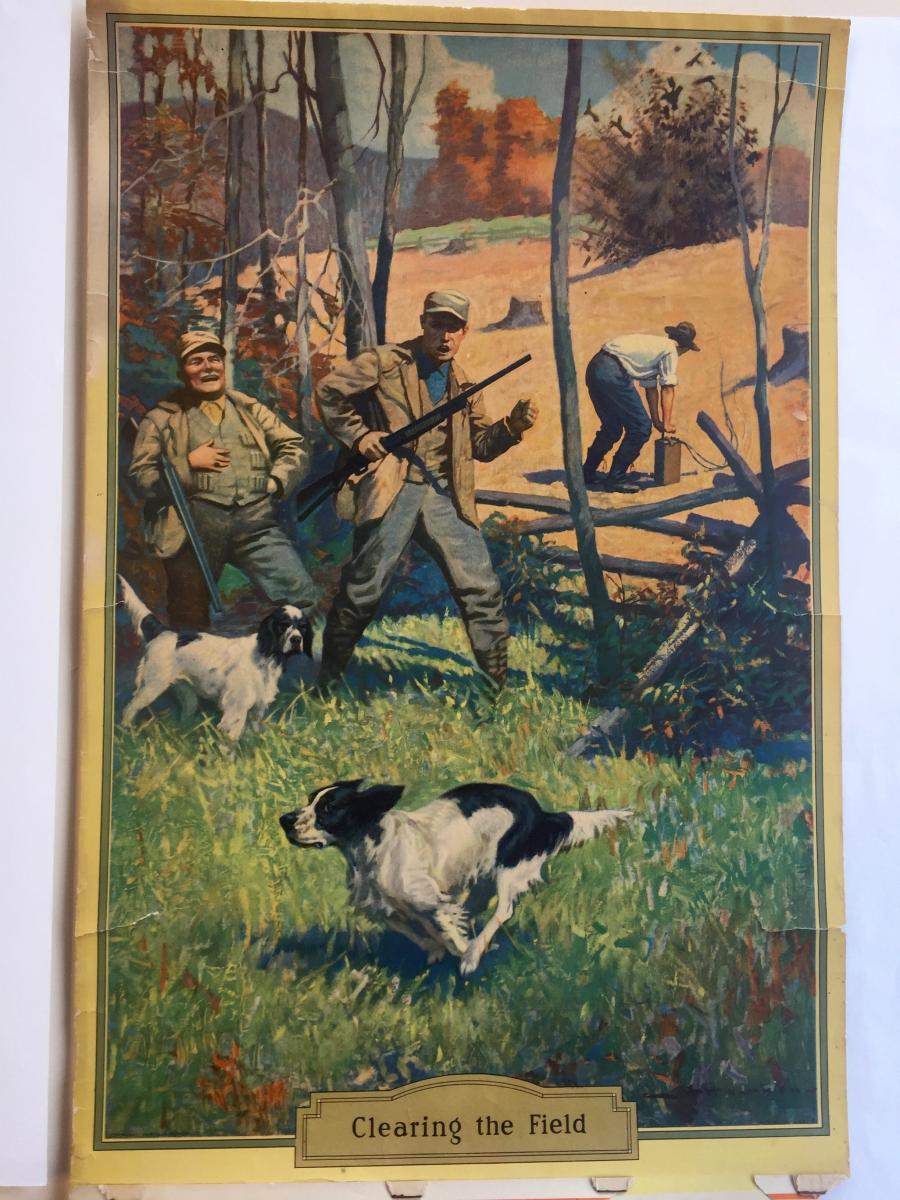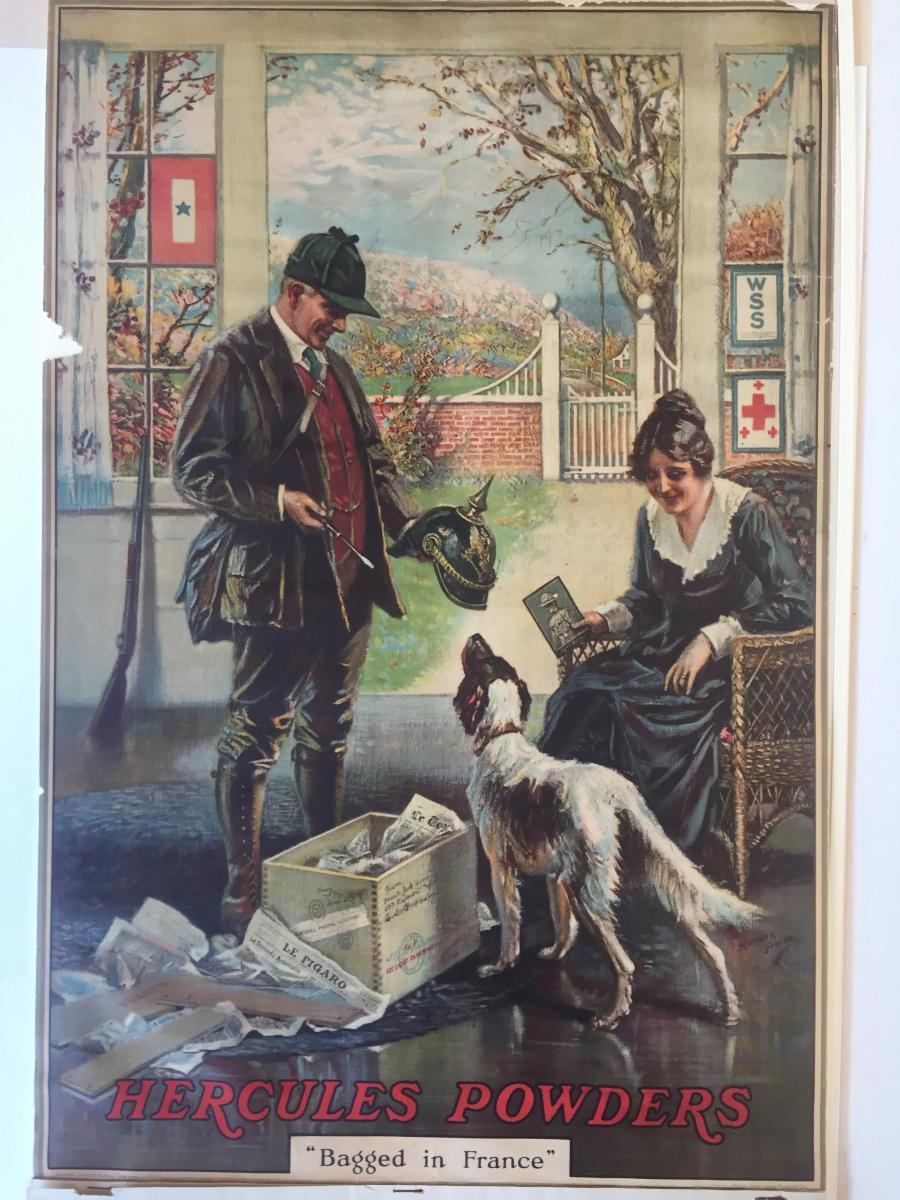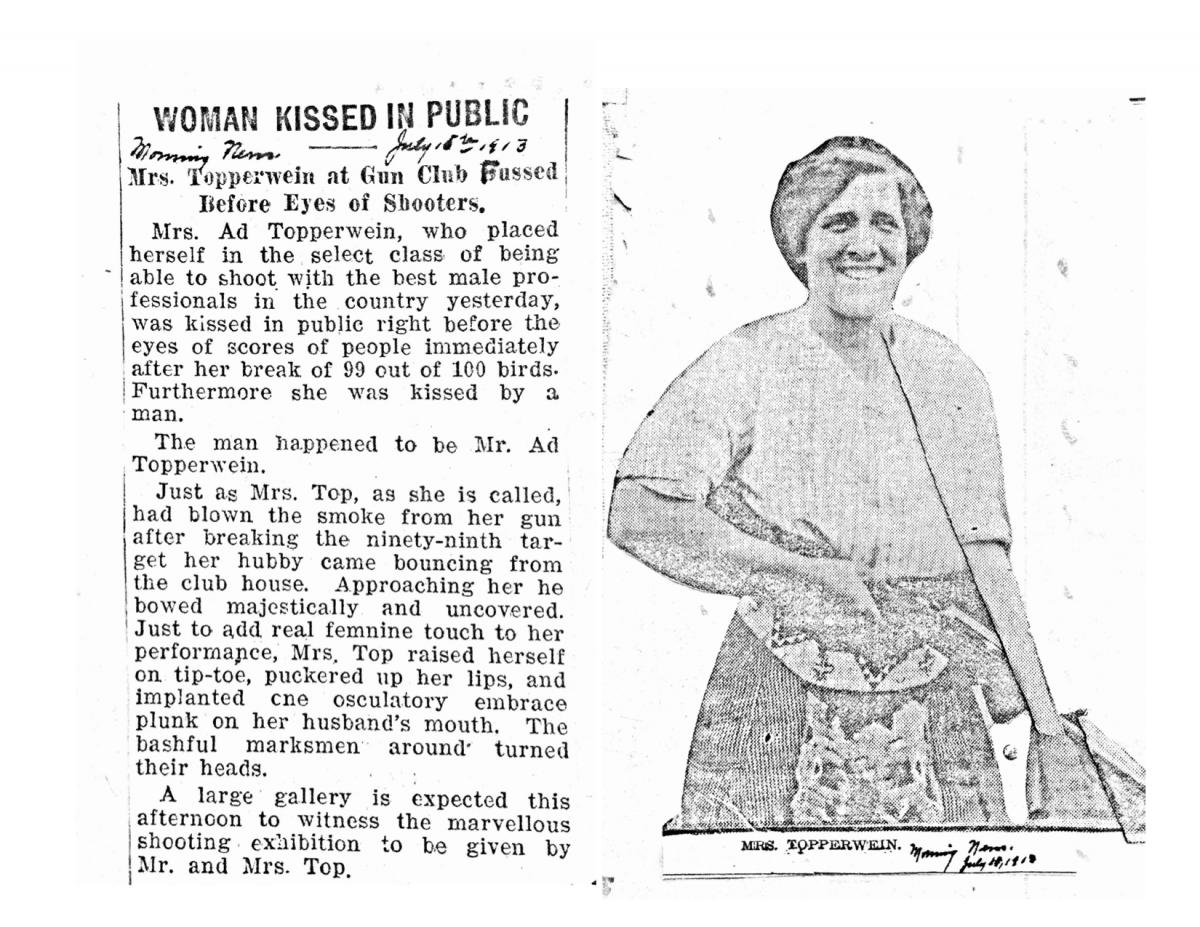With the support of an Exploratory Research Grant at Hagley Museum and Library, I was able to spend time in the library and archive to develop an article that examines intersections of gender, outdoor leisure activities like hunting and fishing, and conservation/land ethics from the late-nineteenth and early-twentieth centuries. Conservation was part of a broader reform spirit of the Progressive Era that included labor reform, temperance, trust busting, women’s rights, and civil rights among others. These movements took place on multiple scales and emphasized management and regulation for the public good.


In my project I suggest that in addition to concern about the environment and nature, the development of environmental ethics was also about performing and projecting a genteel image of class and gender. Outdoor sporting culture, including hunting and shooting, stressed the moral responsibility of elite individuals in the proper management of animals and land.
At Hagley I consulted a variety of sources including the Crofton Family Papers, the Wilmington Trapshooting Association Records, the William du Pont, Jr. Papers, the Hercules Powder Company calendar illustrations, and outdoor magazines such as Country Life. The Harriet D. Hammond Scrapbook collection was particularly fascinating to me. Hammond was the president of the Nemours Gun Club and her scrapbooks contained numerous newspaper clippings, some of which she had authored herself, about the women who participated in the sport. The articles often emphasized women’s bravery in overcoming their supposed natural timidity and frailty to partake in sport shooting. One article by Hammond defended women’s participation in the sport: “It combines fresh air exercise, and training of mind and body, that is a panacea for nervousness, timidity, and poor health. It is a clean, wholesome sport, conducted on a high plane and one in which women may compete on an equal basis with men.”

The idea of women, particularly women of an elite class, participating in shooting was still relatively novel at the time. One article entitled “Woman Kissed in Public” sought to play up the potentially provocative nature of these events. The person that the sharpshooter Mrs. Topperwein kissed, was actually her own husband. Born Elizabeth “Plinky” Servaty, she married well-known sharpshooter Adolph “Ad” Topperwein in 1903 and joined him on the exhibition circuit. The two became known as the Famous Topperweins (sometimes the Fabulous or Wonderful Topperweins) and toured together for almost thirty years. By playing up Mrs. Topperwein’s femininity and relationship to her husband, the article’s author ensures the social acceptability of her shooting. Similarly, women’s activism and conservation efforts during the Progressive Era were often couched in the language of domesticity and morality.
Mallory L. Huard is a PhD Candidate in the Departments of History and Women’s, Gender, and Sexuality Studies at the Pennsylvania State University.
